People are happiest when they feel safe and comfortable. Johnsonite rubber flooring is naturally slip resistant. It has shock absorbing qualities. And natural acoustic properties. It’s also a truly sustainable product, with a long life cycle and low maintenance requirement. Learn More
Rubber Flooring
Rubber Flooring Guide

Durable, Safe, and Stylish: Why Rubber Flooring Is the Ideal Choice for Commercial Spaces
Introduction:
Imagine a flooring solution that not only stands up to heavy foot traffic but also offers superior slip resistance, long-term durability, and an appealing design. Rubber flooring, once seen purely as functional, has undergone a transformation, now providing a blend of practicality and aesthetics. Whether you manage a busy facility or oversee the maintenance of commercial properties, rubber flooring offers a robust, cost-effective, and versatile solution to meet your business needs.
What Is Rubber Flooring?
Rubber flooring is a resilient, durable surfacing option made from natural or synthetic rubber. Known for its toughness and versatility, it has found its place in a wide range of commercial and industrial environments, from hospitals and schools to gyms and retail spaces. With advancements in technology, rubber flooring is now available in a variety of colors, textures, and patterns, offering both form and function.
Features and Benefits of Rubber Flooring:
- Durability: Rubber flooring can withstand high foot traffic and lasts up to 30 years or more, making it a cost-effective choice for high-traffic areas.
- Safety: Rubber offers superior slip resistance, making it ideal for spaces that prioritize safety, such as stairways, hospitals, and aquatic areas.
- Low Maintenance: Rubber flooring is easy to clean and maintain, saving both time and maintenance costs. It resists stains, grease, and chemical spills.
- Comfort: Its soft, cushioned surface reduces fatigue, making it perfect for environments where standing for long periods is common.
- Sustainability: Rubber is eco-friendly, with many options made from recycled materials, contributing to green building practices.
- Aesthetic Flexibility: With a wide array of colors and textures available, rubber flooring can match any interior design while maintaining its practical advantages.
Why Rubber Flooring Stands Out:
Rubber flooring excels where many alternatives, such as vinyl, fall short. Its combination of unmatched durability, superior safety features, and long-term performance positions it as a top contender in the resilient flooring category. Unlike vinyl, which may need frequent replacements, rubber’s extended lifespan makes it a better investment over time. Additionally, rubber flooring’s ability to resist damage from oils, chemicals, and even acids makes it a go-to choice for industrial and healthcare settings where durability is key.
Ideal Applications for Rubber Flooring:
Rubber flooring is incredibly versatile and suits various spaces where durability, safety, and aesthetics are essential. Key applications include:
- Hospitals and Healthcare Facilities: Perfect for operating rooms, lobbies, and therapy areas due to its easy maintenance, resilience, and slip resistance.
- Educational Facilities: Classrooms, gyms, and children’s art areas benefit from rubber’s safety and long-lasting wear.
- Sports Facilities: Athletic training rooms, weight rooms, and locker rooms use rubber flooring for its cushioning, slip resistance, and durability.
- Commercial Properties: Warehouses, retail stores, and offices value rubber for its ability to handle heavy traffic without compromising on design.
- Public Spaces: Museums, stadiums, and aquatic centers appreciate rubber’s aesthetic versatility combined with its functionality.
Explore the durability, safety, and design versatility of rubber flooring for your next commercial project. Whether you manage a hospital, school, or retail facility, rubber flooring provides the long-term value and performance your space needs.
Disclaimer: The information provided in this article is for general informational purposes only. While we strive to ensure the accuracy and reliability of the information presented, we make no warranties, express or implied, about the completeness, accuracy, reliability, suitability, or availability with respect to the content. Any reliance you place on such information is strictly at your own risk. We recommend consulting with professionals for specific advice tailored to your project’s needs, particularly regarding building codes, regulations, and product specifications.
Under no circumstances shall we be liable for any loss or damage, including without limitation, indirect or consequential loss or damage, arising from the use of, or reliance on, the information provided in this article.
Select Product Sub-Category:
Rubber Flooring
Top 2 Types of Rubber Flooring
 Vinyl/Resilient - 164 Rubber Tile FloorsDiscover the versatility and elegance of Rubber Tile Floors, offering superior durability, comfort, and eco-friendly benefits for both commercial and residential spaces. | |
 Vinyl/Resilient - 165 Rubber Sheet FlooringDiscover the versatile and durable Rubber Sheet Flooring, perfect for high-traffic areas. Learn how it enhances both style and functionality in interior design projects. |
Featured Brands
The Best 9 Rubber Flooring Brands
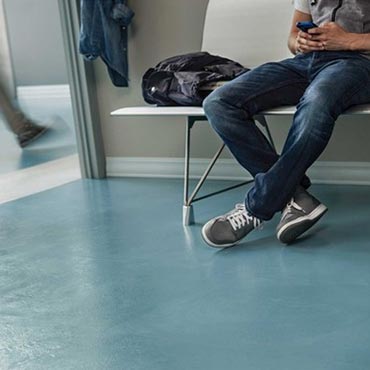
Johnsonite Rubber Flooring
Profile | Website | Install | Maintain | GreenPeople are happiest when they feel safe and comfortable. Johnsonite rubber flooring is naturally slip resistant. It has shock absorbing qualities. And natural acoustic properties. It’s also a truly sustainable product, with a long life cycle and low maintenance requirement. Learn More
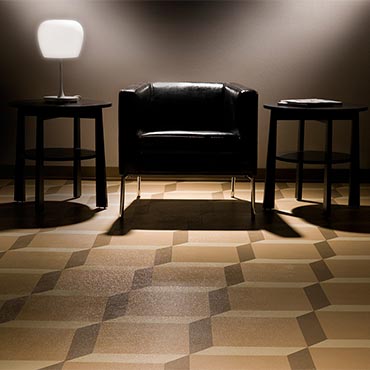
Roppe Rubber Flooring
Profile | Website | Install | Maintain | GreenThe design possibilities are almost limitless with Roppe Rubber Flooring. It is an attractive option for personalized flooring applications, in spaces such as schools, retail areas, museums and more. Roppe makes your flooring come alive, or create a unique look all your own with durable and attractive styles. Learn More

Burke Rubber Flooring
Profile | WebsiteBurke Rubber Flooring provides impressive durability and comfort in a variety of colors and surface textures. Its unique rubber formulation is highly slip-resistant and helps reduce noise from footfall while increasing comfort. Burke Rubber Flooring built in waxes produce a natural luster that requires no waxing or stripping and lowers maintenance costs. Learn More
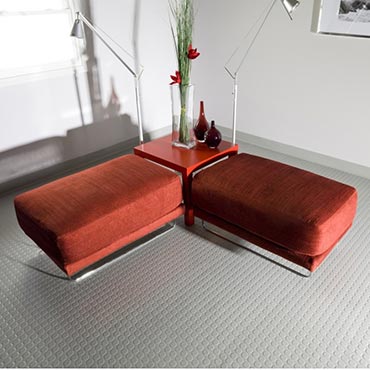
Flexco Rubber Flooring
Profile | WebsiteNaturally resistant to mold and mildew, FLEXCO® rubber floors are designed for durability, versatility and slip resistance, plus they’re very quiet and comfortable under foot. Choose from textured, smooth, and environmentally friendly tile, in colors and patterns to match any design or application, from showrooms and residences to auto shops and bakeries. Learn More
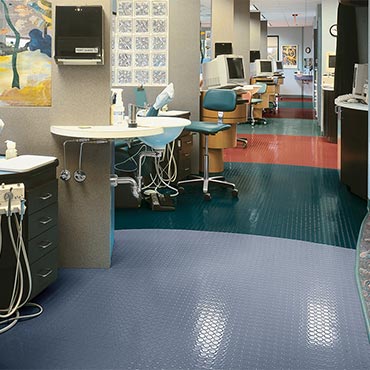
Nora Rubber Flooring
Profile | Website | GreenNora® Rubber Flooring are made of high-quality natural and industrial rubbers. They are mixed with minerals from natural sources and other components, such as environmentally compatible color pigments, pulled into blanks, pressed and then vulcanized under heat and high pressure. That is why they will never need to be coated and still look like new after many years of use. Learn More
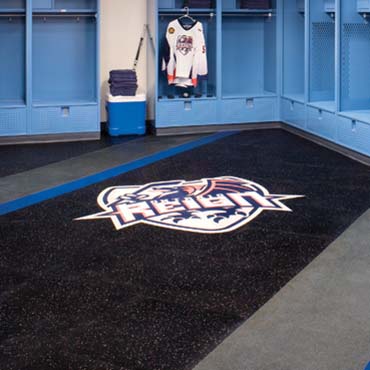
Tuflex® Rubber Flooring
Profile | WebsiteTuflex Rubber Flooring is the original resilient rubber sports flooring. Rubber sports flooring is designed for health and fitness centers, golf and country clubs, hockey arenas. Rubber sports flooring is also used by colleges and professional sports teams. Learn More
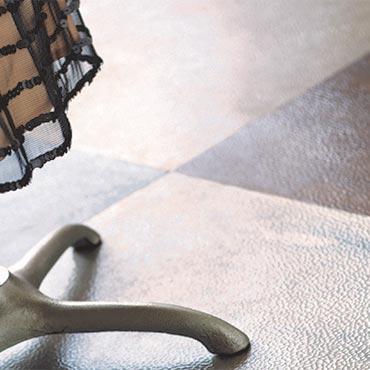
Tarkett Commercial Rubber Flooring
Profile | Website | Warranty | GreenTarkett Rubber Flooring flooring has it all. Universally embraced for its practical beauty and a rare balance of function with aesthetics, safety with efficiency, and short term costs with lifetime return. Learn More
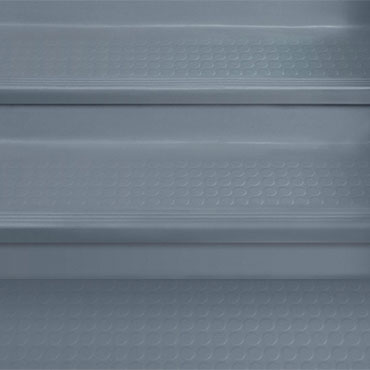
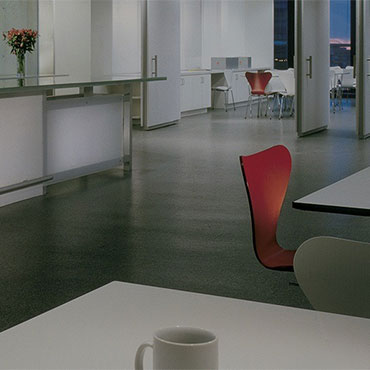
Ecore Rubber Flooring
Profile | WebsiteSince 1987, Harvesting the unique power of recycled rubber, Ecore creates products that align–substantial force reduction with a balanced amount of energy return to create dynamic surfaces that are catered to the individual and the application. We engineer performance well beyond industry standards related to acoustics, ergonomics, and safety. Learn More
Rubber Flooring News
Latest Rubber Flooring News
Sports Multi-Function Flooring...ports flooring solutions work under all kinds of activities. Rubber and vinyl solutions that come in an array of colors, patterns, textures and thicknesses. Triumph Multi-Functional Recycled Rubber Flooring Need a floor that can take a beating and still look great? Triumph is ready. This commercial rubber floor covering is durable, flexible, and easy to maintain. It can take const... |
Rubber Tile Floors...eco-conscious world of design, rubber tile flooring is stepping up. Many options are made from recycled materials, offering a sustainable choice. Dispelling myths, it’s important to note that quality rubber flooring does not off-gas harmful chemicals, aligning with green building standards. Cost ConsiderationsRubber tile flooring is generally cost-effective, especially when ... |
Rubber Sheet Flooring...lagging. Many options are made from recycled materials and are themselves recyclable, contributing to a reduced environmental footprint. Dispelling misconceptions, it's essential to note that quality rubber flooring can be both eco-friendly and durable. Balancing Quality and CostWhen it comes to cost, Rubber Sheet Flooring is an economical contender. While it may be pricier ... |
Rubber Flooring...Transforming Spaces with Durable, Sustainable Rubber Flooring Solutions Introduction: Elevating Commercial Spaces with Rubber FlooringIn the world of modern architecture, designers, specifiers, and building consultants are continuously seeking materials that marry aesthetics with performance. Rubber flooring, once known for its purely utilitarian use, has undergo... |








